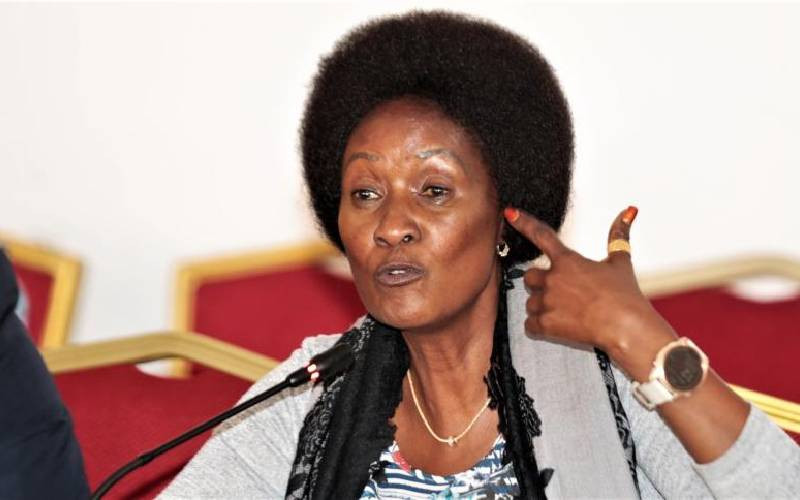The Constitution in Chapter 4 Article 43(1) f provides that every Kenyan citizen is entitled to, among many other rights and freedoms; the right to education.This is in line with the Education for All goals calling on countries to ensure they provide their citizens with free, accessible and equitable education that is in tandem with SDG 4 agenda on provision of free, quality and accessible education to all citizens of the world by 2030. This call has been elusive to most countries in the world.
The Kenya National Union of Teachers alongside other teacher trade unions launched a report on the extent and nature of privatisation and commercialisation of education in Kenya in September, 2022. There is an ongoing debate about private education, notably for-profit education, leading to the commercialisation of education. The UN Special Rapporteur on the Right to Education has devoted three consecutive reports to raising alarm on the subject. Against this backdrop, the study demonstrated the increase of private education providers in the education sector.
Like many other countries, Kenya is slowly recovering from the economic meltdown resulting from the impact of Covid-19. However, for the country to maintain momentum on the gains made on the education front, it is important that the government commits itself more in education provision. Commitment to provide infrastructure, especially the extra classrooms and laboratories for junior secondary schools (JSS) is laudable, plans by TSC to employ 35,000 more teachers on contract terms by the end of 2023 to address workload and understaffing is commendable.
This will go a long way in making public schools more attractive, hence a step in retaining more leaners in public schools. Focus should, however, also be on putting these teachers on permanent and pensionable terms, just like their other colleagues. This will go a long way in promoting equity in service provision.
It is important to note is that there are various causes of privatisation and commercialisation of education in Kenya which can be categorised as demand and supply factors. They are high demand for education, inadequate public schools, perceived decline in quality of education, increased human population, education policies, availability of trained and unemployed teachers, perception of free basic education, increased number of business entrepreneurs in the education sector, reduced government capitation, differentiated curriculum demand in education, lack of regulation of private schools, distance to school, poor working conditions among teachers in the public school system, demands by students themselves and demands by school management boards.
These triggers can be handled by government if proper investment in education is undertaken. In the 2022/2023 budgetary allocation, Sh544.4 billion was appropriated for the education sector. Sh12 billion was set aside for free primary education with Sh2.5 billion going to teacher recruitment, Sh64.4 billion was for free day secondary schools and Sh5 billion for exams waiver for Grade Six, Class Eight and Form Four students. Sh294.7 billion was allocated to the Teachers Service Commission, Sh6.8 billion to the secondary education quality improvement projects, Sh91.2 billion to university education and Sh15.8 billion to Helb, among other costs.
- Inside William Ruto's broad proposals to fix universities financial crisis
-
Why we must make education top priority and pay our teachers well

-
Where many education systems fail in grooming entrepreneurs

This allocation is not enough to sustain the education sector given the fact that the population has out grown the available infrastructure and the 100 per cent transition policy by government. It is of our considered opinion that more funds be directed to the sector for the realisation of both local and international commitments on education.
Realising that it is the role of the government to provide free and quality education to children as stipulated in the Sustainable Development Goal number 4 and the Kenyan Constitution, the survey recommended the need for all education stakeholders to be involved in the national dialogue on the best way to regulate private education providers and increase government schools’ presence in identified areas, especially urban informal settlements.
The study also recommended stringent observance of the Kenya Physical Planning Act (2019) that provides for social amenity spaces in residential areas, revamping public schools to make them more attractive to parents, learners and workers, revised and increased government capitation to public schools, ambitious recruitment of trained teachers to public schools across the country, increase budgetary allocation by the National Government to the quality assurance and standards department to enhance monitoring and regulation of schools.
The survey also recommended a review the boarding schools policy in Kenya, which is the main avenue for commercialisation of education and ensuring the unionisation and protection of the rights of teachers and education support personnel in private schools. We hope these recommendations will help in forming a national dialogue that will address privatisation and commercialisation of education. By Collins Oyuu, The Standard




